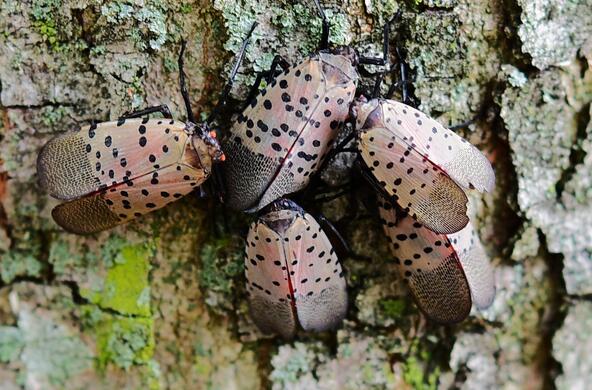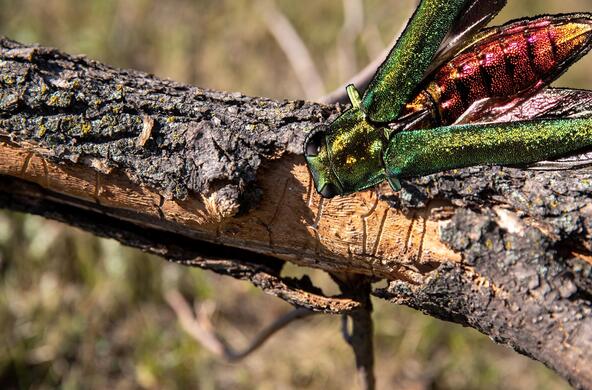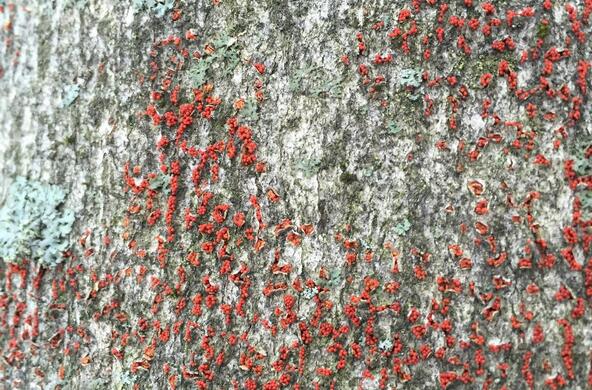- The hemlock woolly adelgid, native to East Asia, is slowly killing trees from Maine to Georgia. It's among the latest in a line of invasive pests slipping into the US.
- According to some studies, invasive pests are costing the US economy close to $5 billion a year.
- Eventually, many of the ash trees in the eastern US will die due to these insects and new species will take their place.
While there's nothing wrong with changes in plant and tree species, change is occuring at an alarming rate.
From a distance, the hemlock trees by the Wappinger Creek in Millbrook, New York, look just fine. But forest ecologist Gary Lovett knows better. He pulls back the twigs and exposes some tiny, white fluffy balls.
"These are the protective coating that's created over the top of the hemlock woolly adelgid, a tiny aphid-like insect," said Lovett.

"They're very tiny, so one of them won't bother the tree. But when we have millions and millions of them on a tree, it eventually kills the tree," explained Lovett, who is with the Cary Institute of Ecosystem Studies in Millbrook, about a two-hour drive north of New York City.
All it takes are a few bad pallets. So, Lovett argues for ditching wood pallets and replacing them with other materials, like recycled plastic or composite wood materials such as plywood or oriented strand board. One problem: those alternatives cost more.
But according to some studies, invasive pests are costing the US economy close to $5 billion a year. Trees don't just die in forests, they die in cities and our yards.
"Most of the cost is being borne by homeowners and by local governments, municipalities," Lovett said.
Consider the nearby city of Poughkeepsie, New York, which has a problem with the emerald ash borer, another invasive pest native to Asia, infecting its ash trees.
"I think it's safe to say that of the city-owned trees, 90 percent are infected," said Nelson.
The city has to pay to take the trees down, or eventually, they'll die and fall. (You could imagine the horror story lawsuits were that to happen.) So the city recently took down 50 ash trees. The cost: $82,000.
That might not sound like much, but for a small city with a big deficit, Nelson said, it's a lot. Trees also improve property values and air quality and provide shade. They matter a lot to a city.
Multiply Poughkeepsie's problem across thousands of communities like it.
Banner photo
University of Georgia forest entomologist Tom Coleman examines a branch of hemlock infested with woolly adelgid at the University of Georgia.John Bazemore/AP Photo






